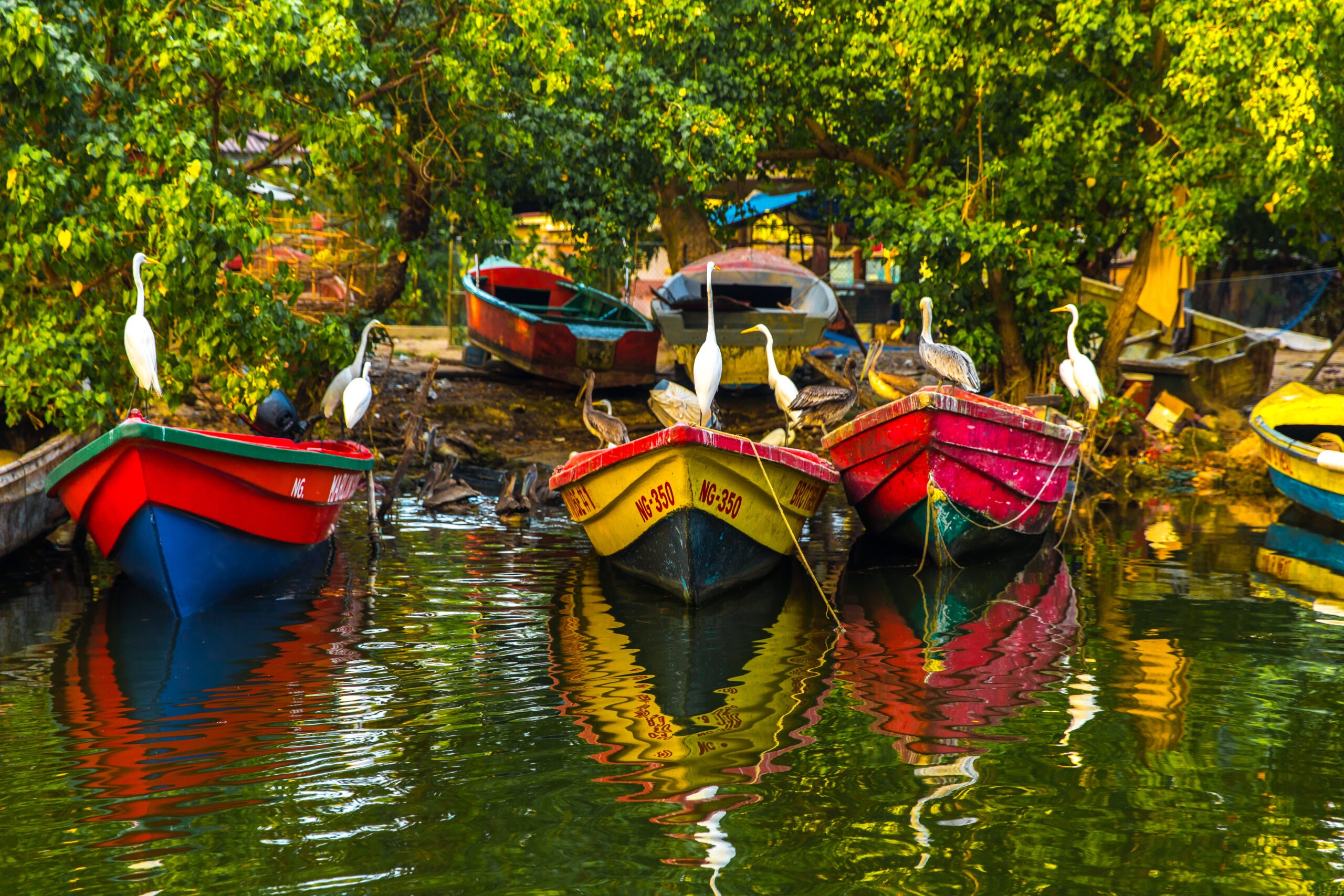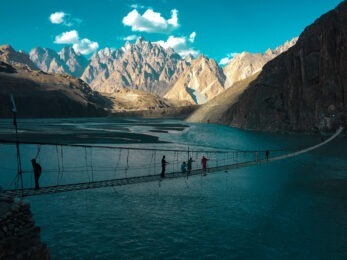How sustainable practices protect paradise
Planners will be hard-pressed to conjure up an incentive trip more enticing than meeting at a tropical island destination surrounded by paradise. And chances are, gathering at such a location will make a powerful and lasting impression on attendees who will be more likely to engage with the activities and materials provided thanks to such a pristine setting—and good vibes. But despite the coveted status of destinations such as Hawaii and Jamaica, there’s no place on earth that’s impervious to the perils of global warming or the blight of irresponsible environmental practices, but luckily, many are taking a stand to protect island destinations for future generations.
Paradise has innumerable advocates within the hospitality industry, many of which are launching new initiatives to celebrate and preserve beautiful destinations such as the Hawaiian Islands. These initiatives are focused on sustainability with the goal of supporting the most eco-friendly practices possible including sustainable gardens located on hotel properties, partnerships to curb food waste, programs to help procure locally sourced produce, and programs to boost the local community such as youth development.
Community Care
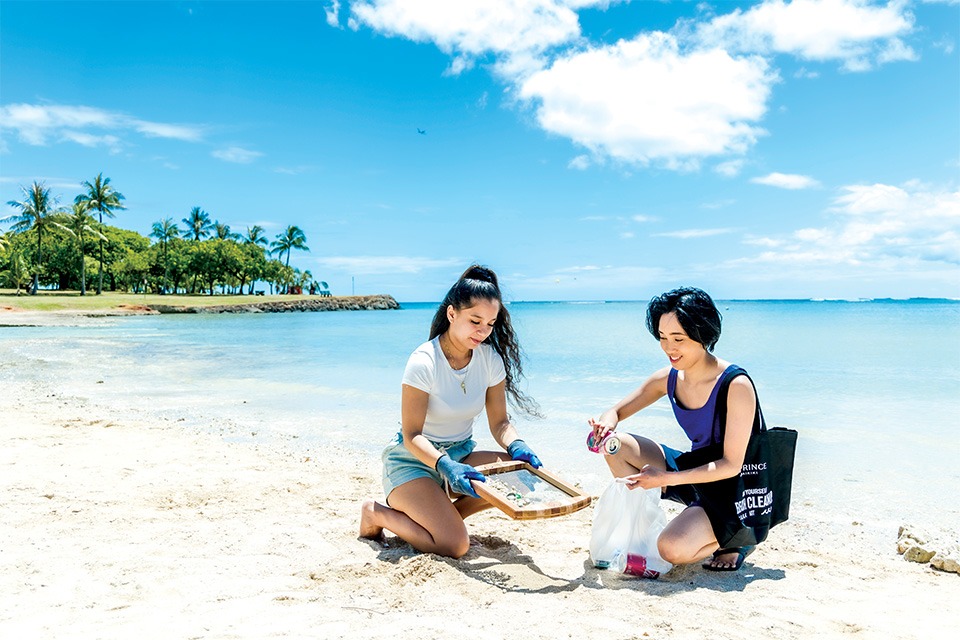
Prince Waikiki on the island of Oahu showcases sustainable practices at the oceanfront, AAA Four Diamond hotel with features such as the only rooftop produce garden on the island that produces lettuce, lilikoi, edible flowers, garlic chives, chili peppers and yuzu to name a few. The new garden program has allowed the resort’s 100 Sails Restaurant and Bar to serve a garden vegetable mélange salad made completely from greens and edible flowers and lilikoi grown from the rooftop garden. 100 Sails sources close to 100% of its ingredients locally and from resort gardens.
And the efforts put forth at Prince Waikiki goes a step further to ensure the resort produces a minimal carbon footprint by partnering with local organizations such as Aloha Harvest—a nonprofit focused on food rescue.
Stemming food waste has been elevated in the consciousness of event planners, hoteliers and banquet services and Aloha Harvest is hard at work collecting unused and untouched foods twice weekly to help feed members of the local community going hungry or grappling with food insecurity. “As a chef, it’s important to dive deeper into how culinary operations impact sustainability and seek out ways to create a zero-waste atmosphere in our restaurant,” says Executive Chef at Prince Waikiki, Jeremy Shigekane. “Whether it’s creating shorter menus, composting food scraps, working with local farmers and purveyors, or simply using the entirety of a product, there are a variety of ways our industry can make a difference.”
Chef Shigekane has taken measures to ensure that the restaurant’s food footprint is minimal by creating smaller menus and seasonal dishes using what’s available from local producers. He also works with minority partners including women and LGBTQIA+-owned businesses.
Read More: Ditching the Dump
Since 1999, Aloha Harvest has rescued 32,585,339 pounds of food from ending up in landfills, helping to feed local residents where one in six rely on food banks or food pantries for support. That rate of food insecurity is 35% higher than the national average—making the service even that much more urgent. But the benefits to the community, and mother earth, doesn’t end there. Food dumped in landfills eventually decomposes, and in anaerobic conditions, releases the greenhouse gas known as methane, which is 25 times more potent than carbon dioxide. Food rescue prevents the increase in the environmental footprint caused by food waste.
Environmental Support

What would Hawaii be without its world-class coastlines and crystal-clear waters? Local, grassroots nonprofit, Sustainable Coastlines, is urging those concerned with making strides to protect Hawaii’s ecosystems. Earth Day Cleanup Festival that will take place on April 23 at Waimānalo Beach Park. Participants will clear rubbish from the beach and take part in restoration activities—all while enjoying live music, workshops, hosted vendors and a yoga session for those who arrive before the event kicks off at 9:30 a.m.
To date, Sustainable Coastlines has provided environmental education to 45,068 “Keiki” (children), conducting 240 cleanups while working with a total of 34,870 volunteers who collectively cleared 609,106 pounds of garbage from area beaches and fauna. While the Earth Day Cleanup Festival is open to the public, Sustainable Coastlines also offers planners the opportunity to schedule private and corporate cleanup events, allowing attendees to participate in making a positive impact while creating an atmosphere primed for team building all while soaking up some sun in a gorgeous destination. In addition to taking part in a sanctioned cleanup, participants also receive hands-on training and education during the excursion, which is sure to inspire and keep the momentum of camaraderie going strong.
In addition, Sustainable Coastlines formed a partnership with Prince Waikiki and the Hawaii Tourism Authority known as the Malama Hawaii initiative. It allows guests staying at the resort to engage in beach cleanups with guidance provided within DIY beach cleanup kits. Participants receive special benefits, including every fourth night at Prince Waikiki free of charge, a commemorative gift and guests who are part of the Prince Preferred Members program receive 50% discount on resort charge services and amenities.
One Love, 17 Goals
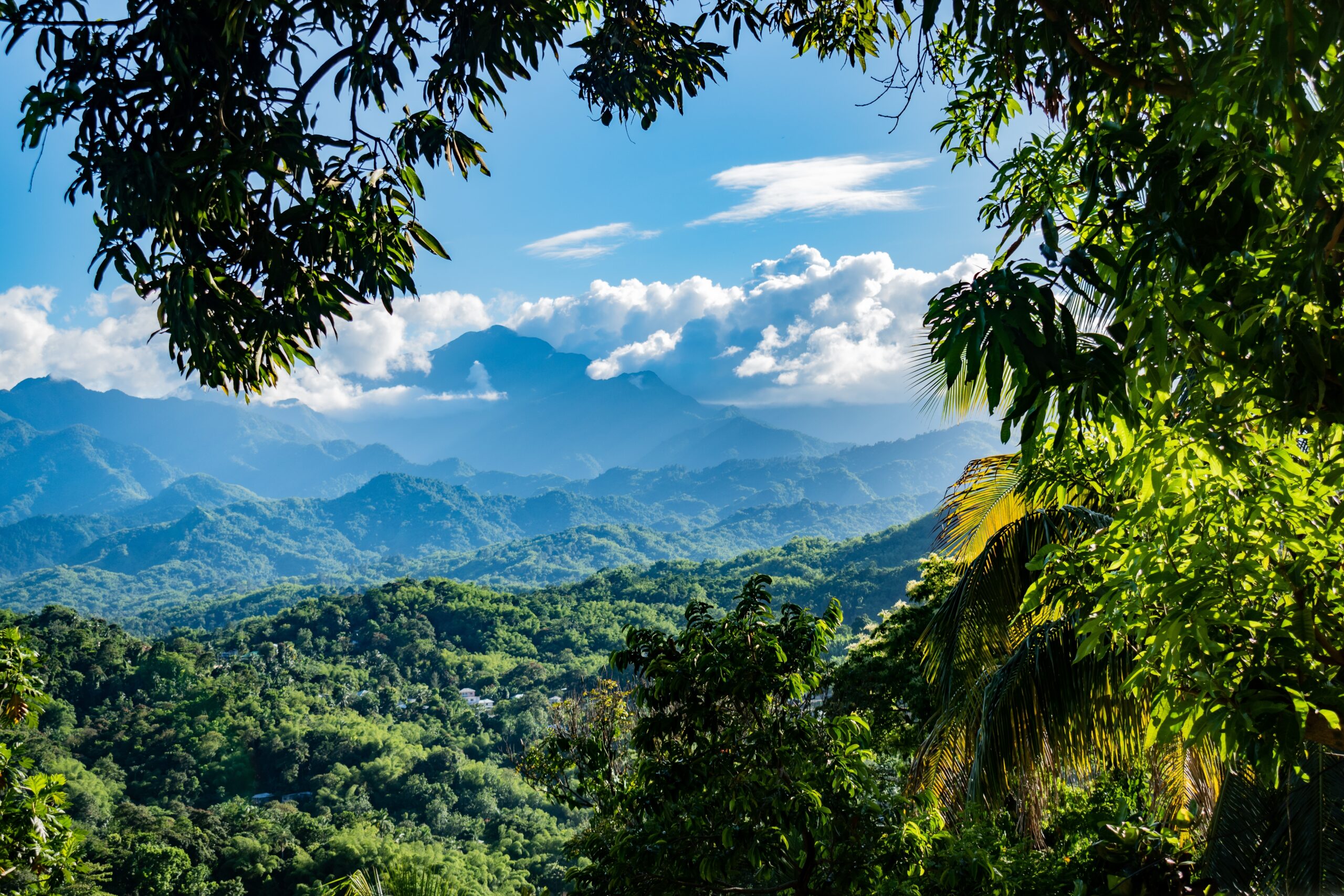
Efforts to protect the gorgeous landscape of Jamaica, from the rippling blue waters lapping reef-lined beaches to lush botanical gardens and the island nation’s Blue Mountains have been extensive. So much so that Jamaica’s goals in sustainable efforts have garnered the attention of the United Nations, which led to the formation of a partnership to achieve these goals by 2030. The program was first launched in 2015 with 193 member states participating.
The partnership, known as the Country Implementation Plan for Jamaica, includes a total of 17 ambitious goals to “address the major development challenges faced by people in Jamaica and around the world,” according to a press release issued by the U.N. Jamaica played a crucial role in shaping the U.N.’s global Vision 2023 embraced the agenda and used it to create a framework for Jamaica’s development plans that were created based data provided by consultations and bilateral meetings and recommendations from the Economic Growth Council.
Each program priority is directly tied to one of the 17 Sustainable Development Goals, which include curbing poverty and hunger, creating sustainable consumption and production patterns, building an improved infrastructure and ensuring the availability and sustainability of clean water, among others.
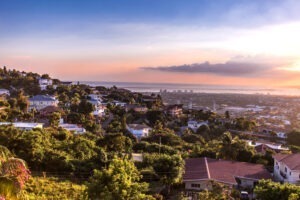
Additionally, the plan calls for climate action targets that will allow Jamaica to build national policies, strategies and planning based on climate change measures. And much like its counterpart in the Pacific, Jamaica is making moves to significantly reduce all kinds of marine pollution including that from land activities, marine debris and end overfishing by 2025.
Industry professionals can plan confidently knowing that they’re upholding any corporate social responsibility components their clients wish to implement during events at one of Jamaica’s sustainable events facilities. Montego Bay Convention Center (MBCC) is a prime example of facilities in Jamaica that are leading the way in providing top-tier services while emphasizing a reduced carbon footprint.
MBCC has implemented sustainability programs to provide greener operations including on-site composting to produce organic fertilizer, using paper products made from 100% recycled materials—as well as using e-platforms to reduce the overall use of paper, building a catchment pond for irrigation to name a few. However, the efforts of the convention center doesn’t end there. The use of third-party audits allows the convention center to accurately access where energy can be saved, the use of energy-efficient lighting, the installation of water-saving devices in restrooms and other facilities that consume water, as well as an extensive recycling program for everything from spent bulbs and batteries to organics brochures.
Travel Partners Pitch In
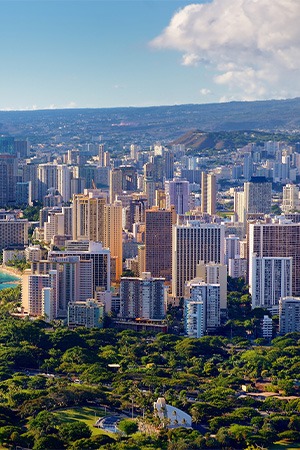
There’s only one form of transportation travelers can use to reach the Hawaiian Islands, so it makes sense that air carriers are doing their part to care for the environment. Alaska Airlines announced a partnership with The Surfrider Foundation in early April, with the goal of protecting the oceans and beaches of Hawaii, California and the Pacific Northwest. Employees of Alaska Airlines and members of these coastal communities are invited to participate in various cleanup and restoration projects.
“We’re committed to being part of a positive future for the role that our ocean and coasts play in our communities, which is why we’ve set goals for our company to reduce waste and have made significant progress in the last few years to reduce single-use plastic on our flights,” said Director of Sustainability at Alaska Airlines, Scott Coughlan. “The Surfrider team truly walks the talk, rolling up their sleeves to clean up beaches and other impacted areas. We are excited to share our passion for bringing people together, and for sustainability, to partner on this journey.”
Alaska’s goal is to replace the airline’s top five waste-producing items used for onboard services by 2025, engaging in habitat restoration projects to balance out the carrier’s water footprint and reducing plastic waste by 2.2 million pounds annually by eliminating plastic bottles, cups, straws, stir sticks and citrus picks from inflight service.
“The Surfrider team truly walks the talk, rolling up their sleeves to clean up beaches and other impacted areas. We are excited to share our passion for bringing people together, and for sustainability, to partner on this journey.”
— Director of Sustainability at Alaska Airlines, Scott Coughlan
“The Surfrider Foundation is proud to partner with Alaska Airlines, which has been a leader in reducing single-use plastics in air travel,” said Surfrider CEO Dr. Chad Nelsen. “Starting in 2018 with the elimination of straws, they are now encouraging their passengers to use reusables and #fillbeforeyoufly, while also eliminating plastics cups. We are excited to extend their commitment to reducing plastic pollution to coastal communities through cleanups and local education.”
This article appears in the May/June 2023 issue. You can subscribe to the magazine here.
